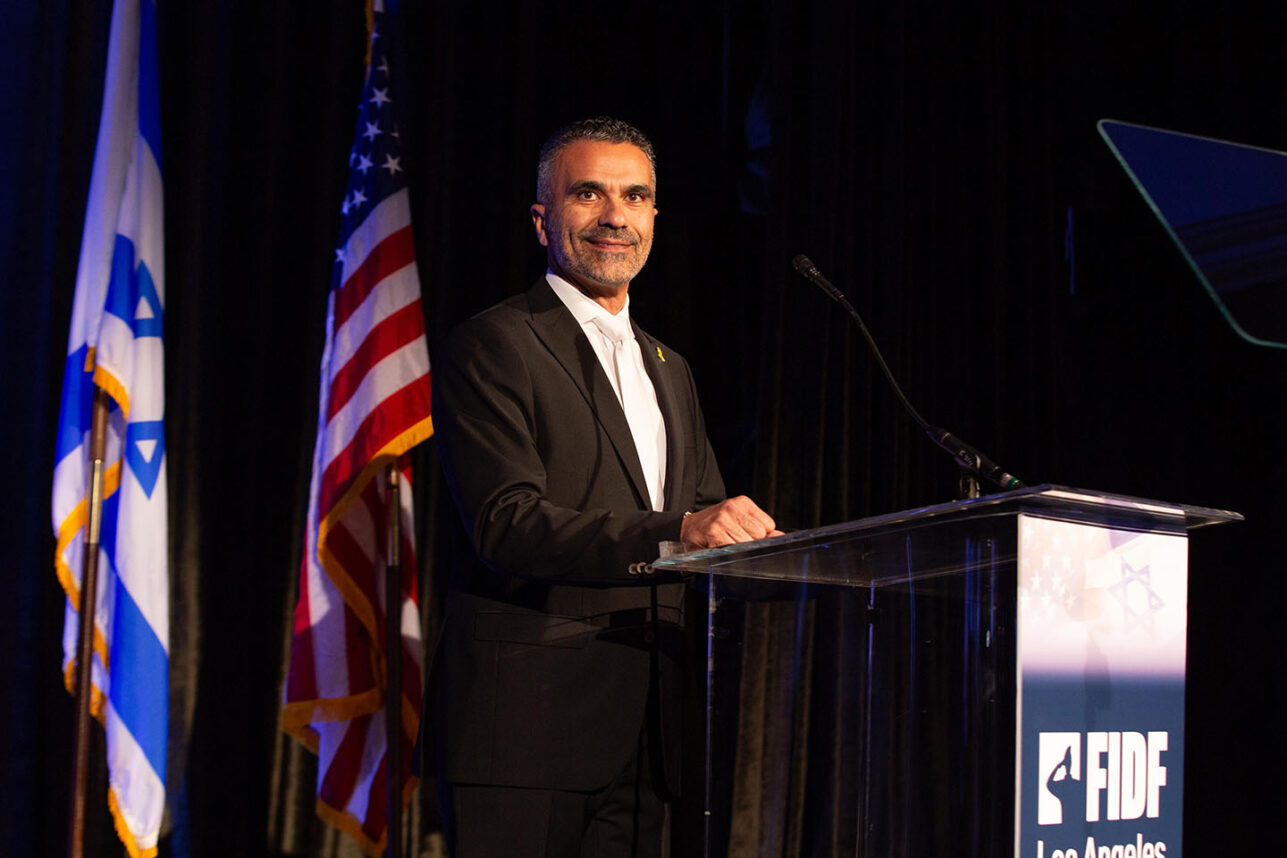One of Rabbi David Aaron’s favorite biblical analogies derivesfrom the story of Jacob’s dream, in which the patriarch saw a ladderstretching from earth to the heavens.
The narrative can also be interpreted to mean that Jacob himselfwas the ladder, with his feet on the ground and his head in the sky,says Aaron.
“That interpretation is my image of the true Jewish life, with menand women as living connectors between heaven and earth,” he says.”The connection with God doesn’t take you out of this world; it putsyou more in it and makes you more productive and successful in whatyou do.”
This, put simply, is what Aaron tries to convey through variousvenues and media.
The 40-year-old Toronto native, red hair curling out from underhis kippah, traveled to Israel when he was 18 to find answers to thebig questions about the meaning of life.
He discovered many, if not all, answers through study of thekabbalah, which he terms “the grammar of Judaism” and “the key to theinner meaning and spiritual essence of the Torah.”
Ten years ago, he established the Isralight Institute in Jerusalem– housed in a Crusader-era building overlooking the Western Wall –partially to fill a gap in the teachings of traditional Orthodoxyeshivot, which, he believed, neglected the spiritual side ofJudaism.
Through a series of year-round seminars, attended primarily by menand women from English-speaking countries, Aaron tries to pass on thespiritual, conceptual and mythical content of Judaism, or, as he putit, “the soul meaning of being Jewish.”
Earlier this week, Aaron was in Los Angeles for four publiclectures and to promote his book “Endless Light: The Ancient Path ofthe Kabbalah to Love, Spiritual Growth, and Personal Power” (Simon& Schuster, $22).
The major thrust of his book, based on 20 years of kabbalisticstudies, is the need for a “balanced life…a spiritual yet groundedlife,” says Aaron.
“Eternal Light” is now on display in many bookstores, oftenalongside “Climbing the Mountain,” a book by Aaron’s star pupil, KirkDouglas, who credits the rabbi with a major role in showing him theway back to Judaism.
“Jacob’s Vision,” an 18th century Italian engravingof Jacob’s encounter with angels on his departure from Canaan, thesource for one of David Aaron’s favorite biblical analogies.
From “My Jewish World,” 1975.























 More news and opinions than at a Shabbat dinner, right in your inbox.
More news and opinions than at a Shabbat dinner, right in your inbox.